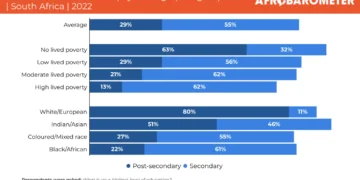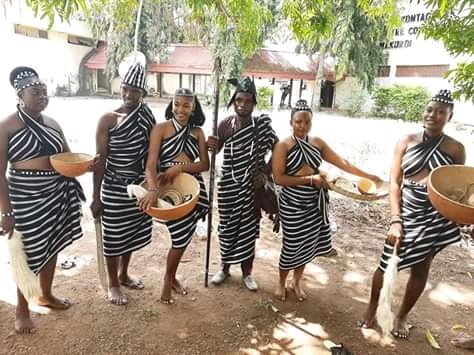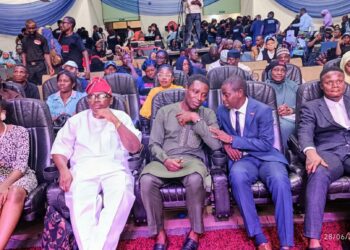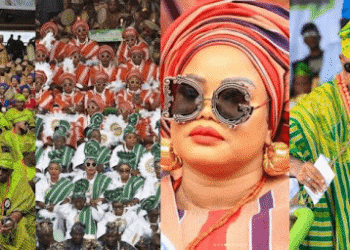The Tiv people of Benue State, Nigeria, are a vibrant and culturally rich ethnic group known for their deep-rooted traditions, strong communal ties, and agricultural heritage. As the largest ethnic group in Benue and one of the most influential in Nigeria’s Middle Belt, the Tiv have a unique history, language, and social structure that have shaped their identity over centuries. From their colorful dances and symbolic attire to their intricate clan systems and spiritual beliefs, the Tiv people offer a fascinating glimpse into Nigeria’s diverse cultural landscape. Here are 20 interesting facts that highlight the depth and beauty of Tiv heritage.
1. Ethnic Group and Population
The Tiv people are the largest ethnic group in Benue State and one of the largest in Nigeria’s Middle Belt region. They account for over 60% of the state’s population and are also found in parts of Nasarawa, Taraba, and Plateau States, as well as in Cameroon.
2. Language
The Tiv people speak the Tiv language, a member of the Benue-Congo branch of the Niger-Congo language family. It is a tonal language with a rich vocabulary and oral tradition.
3. Origin and Migration
According to oral history, the Tiv trace their ancestry to a man named Tiv, believed to have migrated from the Bantu regions of Central Africa. They migrated northward and settled in their present location in the Benue Valley several centuries ago.
4. Clan System
Tiv society is organized into clans based on lineage from the sons of Tiv — Ichongo and Ipusu — who further gave birth to sub-clans. These clans form the basis for political, social, and cultural organization.
5. Social Structure
The Tiv people practice a form of gerontocracy, where elders hold significant power and influence in decision-making. Leadership is typically age-based and consultative.
6. Traditional Governance
They traditionally operated without centralized kingship. Instead, governance was decentralized, with each clan led by elders known as Tor or Orya. However, in modern times, the Tiv have a paramount traditional ruler known as the Tor Tiv.
7. Tor Tiv Institution
The Tor Tiv is the highest traditional office among the Tiv. It was established during colonial rule to help the British administer the people more easily. The office remains a central symbol of Tiv identity and pride today.
8. Religious Beliefs
Before the advent of Christianity, Tiv people practiced traditional African religion. They believed in a supreme god, Aondo, and other spirits like Tsav and Akombo. Today, many Tiv people are Christians, particularly Catholic, NKST (Reformed Church), and Pentecostal.
9. Tsav and Akombo
Tsav is considered mystical power, often linked to leadership and spiritual authority. Akombo refers to spiritual forces or deities associated with particular places, objects, or diseases. These beliefs influenced traditional healing and divination practices.
10. Agriculture
The Tiv are predominantly farmers. They are major producers of yam, cassava, maize, rice, soybeans, and guinea corn. Their farming practices are mostly subsistence but also commercial.
11. Music and Dance
The Tiv have vibrant music and dance traditions. One of their most popular dances is the Swange dance, characterized by graceful movements of the waist and hips. It is often performed at festivals and ceremonies.
12. Swange Music
Swange is not just a dance but a genre of music played with traditional instruments like the iboo (drum), indyer (gong), and flutes. It carries social commentary and is used for entertainment and education.
13. Dress and Adornment
Tiv traditional attire is known as “Anger”, a black-and-white striped cloth. It is worn during festivals, weddings, and official functions. The pattern symbolizes the zebra and signifies uniqueness and unity.
14. Marriage Customs
Marriage among the Tiv is traditionally arranged through elaborate bridewealth negotiations. Families exchange gifts, and various rituals are performed. However, modern practices are increasingly blending traditional and contemporary ceremonies.
15. Cuisine
Tiv cuisine includes dishes like pounded yam, semovita, and tuwo, often served with soups such as gbegiri, egusi, ogbono, or beniseed (sesame) soup. They also consume roasted or boiled yam with palm oil and pepper sauce.
16. Naming System
Tiv names often carry meanings and are tied to circumstances of birth, history, or ancestral legacy. Examples include Terkimbi (God has remembered me), Dooshima (love of my life), and Iorver (the people are many).
17. Education and Intellectuals
The Tiv people place a strong emphasis on education. Benue State has one of the highest numbers of tertiary institutions in Nigeria, and the Tiv contribute significantly to Nigeria’s academic, legal, and political spheres.
18. Political Involvement
Tiv people have a history of political engagement. Notable figures include the late Joseph Tarka, a key figure in Nigeria’s First and Second Republics, and Senator George Akume, a former governor and minister.
19. Festivals
The Tiv celebrate several festivals, including the Kwagh-hir Festival, a theatrical puppet performance with masks and storytelling that conveys morals and entertains. It’s a fusion of drama, dance, and masquerade.
20. Challenges and Resilience
Despite facing challenges like herdsmen-farmer conflicts, displacement, and underdevelopment, the Tiv people remain resilient. They continue to advocate for their rights and development through education, media, politics, and civil society.





































































 EduTimes Africa, a product of Education Times Africa, is a magazine publication that aims to lend its support to close the yawning gap in Africa's educational development.
EduTimes Africa, a product of Education Times Africa, is a magazine publication that aims to lend its support to close the yawning gap in Africa's educational development.

